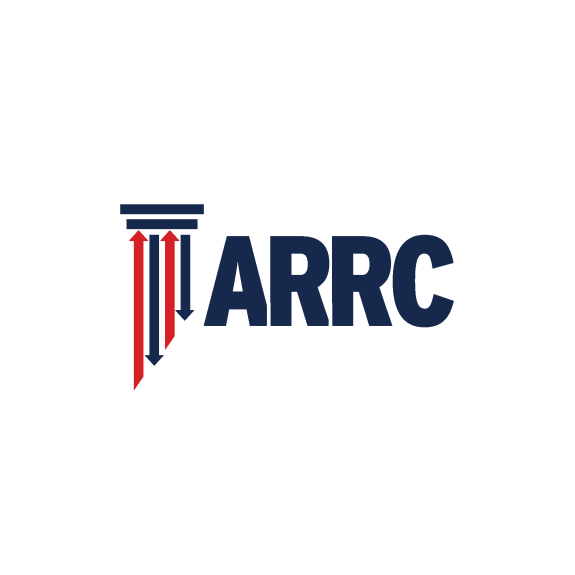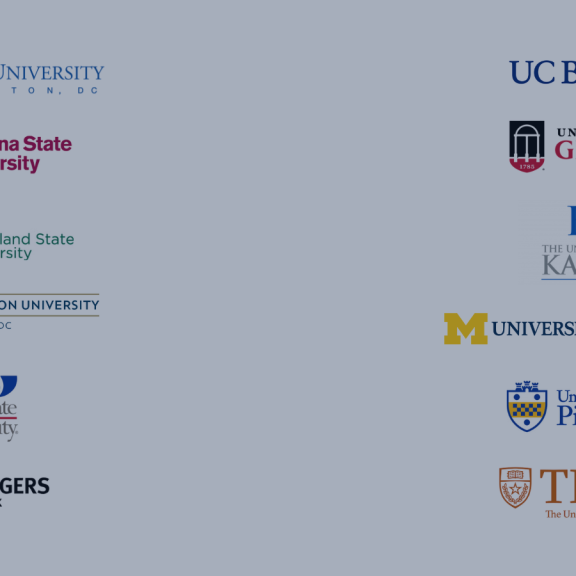Accountability and Reform Research Consortium (ARRC)
Accountability and Reform Research Consortium (ARRC)
Documenting the impact of changes to the federal workforce on public service delivery, citizens, and democratic governance.

The Accountability and Reform Research Consortium (ARRC) is a cross-university research collaborative formed to deliver rigorous and timely research on the impact of cuts to the federal workforce and programs on public service delivery, citizens, and democratic governance in the United States.
ARRC is convened by the Volcker Alliance and co-chaired by William Resh, professor and chair of the Department of Public Management and Policy at Georgia State University, and Chris Koliba, Edwin O. Stene Distinguished Professor of Public Administration, Policy & Governance at the University of Kansas.
Request for Proposals: Governance Capacity
ARRC invites proposals on timely research projects that advance work aligned with ARRC’s Governance Capacity Community of Practice (CoP) that will advance descriptive, evaluative, and summative understanding of administrative capacity in democratic states.
Upcoming Virtual Events
Friday, February 20, at 12:00 p.m. ET: The Workforce & Expertise Community of Practice is convening a brief panel discussion on the newly released Office of Personnel Management (OPM) workforce data and updates related to FedScope modernization. Panelists will help researchers interested in federal workforce issues and data understand what has changed, what the data can now support analytically, and what limitations remain.
Wednesday, February 25, at 12:00 p.m. ET: The Governance Capacity Community of Practice is hosting a talk with Michael Bauer, where we will consider current events in the US in light of “illiberalism” and transgressions of democratic accountability norms and standards. Michael W. Bauer is the lead co-editor of the book Democratic Backsliding and Public Administration: How Populists in Government Transform State Bureaucracies.

GOALS
ARRC’s efforts are anchored in the following goals:
- Conduct collaborative research to assess the impacts of current cuts to federal programs and personnel;
- Incentivize investigation of priority research questions by centralizing resources and facilitating peer-to-peer exchange;
- Produce timely, accessible research that informs policymakers and citizens while advancing the fields of public administration and policy; and
- Establish interdisciplinary communities of practice (CoPs) to support the next generation of scholars committed to promoting democratic governance and the public interest.
Research Pillars
ARRC’s collaborative research agenda is organized into four key priority areas. These research pillars serve as anchors for four respective Communities of Practice (CoPs), which are groups of academics and practitioners convening regularly to deliver a set of research outputs aligned with the research agenda.
Workforce and Expertise
ARRC will support studies that examine how personnel actions influence government’s internal capacity to attract talent, retain expertise, and deliver services, and how these workforce changes affect the broader fabric of democratic society and public trust.
Governance Capacity
ARRC will support studies focusing on the features of institutional capacity and design that are needed to sustain democratic governance and effective administrative systems at all levels of government.
Structural and Societal Impacts
ARRC will support studies of “downstream” effects of federal disinvestment and deconstruction on wellbeing, protection of rights, security of people, the environment, and institutions.
Data and Analytical Infrastructure
ARRC will support research that tracks, preserves, and analyzes government data using a variety of methods, including AI and machine learning, to create new performance measures to facilitate continued evidence-based research.
ACTIVITIES
ARRC will sponsor priority research projects, centralize and disseminate datasets and sources, cultivate communities of practice, convene research workshops and symposia, and actively collaborate with partners.
OUTPUTS
ARRC will deliver timely research to policymakers and the public in several ways, including:
- White papers, policy briefs, and peer-reviewed articles;
- Podcasts and webinars;
- Public-facing data visualizations and interactive dashboards; and
- Transparent, open-source datasets.
MEMBERSHIP
ARRC's founding members are schools of public service committed to advancing rigorous, timely, and nonpartisan research on the impacts of federal workforce changes. Researchers and scholars outside of member institutions, as well as practitioners, policymakers, and organizational partners, are welcome to participate in ARRC's communities of practice.
GET INVOLVED
Are you a scholar or researcher at an academic institution working on topics that align with ARRC’s mission? Click here to complete our academic interest form.
Are you a policymaker, practitioner, or organizational partner interested in staying connected to ARRC, contributing data, or exploring potential collaboration opportunities? Click here to complete our partner interest form.
Have a question?
Please email us at [email protected], and our team will be in touch.